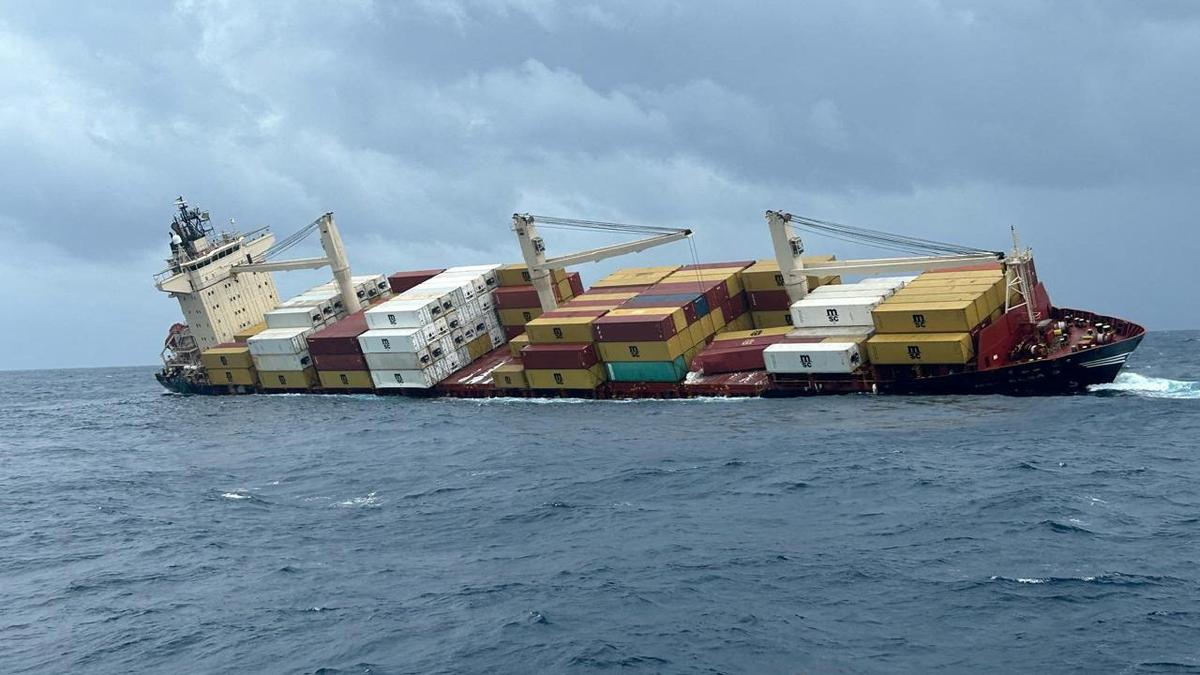Gemi Enkazı Olayına Genel Bakış
25 Mayıs 2025'te, Liberya bayraklı MSC Elsa 3 gemisi, Hindistan'ın Kochi kıyısından yaklaşık 14,6 deniz mili açıkta battı. Bu olay, özellikle kıyı toplulukları ve çevre savunuculuğu grupları arasında, ortaya çıkan ekolojik ve sosyo-ekonomik etkilerle ilgili önemli tartışmalara yol açtı.
Ekolojik Etkiler
Gemi enkazının sonuçlarını detaylandıran kapsamlı bir rapor, çeşitli çevresel sorunlara ışık tutuyor. Özellikle, kıyı bölgelerinin granüllerle—küçük plastik peletler—kirlenmesi çevreciler arasında endişe yaratmıştır. Bu peletler Kerala, Tamil Nadu kıyı şeritlerinde bulunmuş ve hatta Sri Lanka'ya kadar sürüklenerek endişe verici bir çevresel senaryo oluşturmuştur.
Kirlilik Türleri
Rapor, MSC Elsa 3'ün batmasından kaynaklanan iki ana kirlilik türünü tanımlamaktadır:
- Hidrokarbon Kirliliği: Gemi enkazından kaynaklanan petrol sızıntısı, deniz yaşamı ve yerel balıkçılık için önemli bir tehdit oluşturmaktadır. Petrol tabakalarının kalıcılığı, hassas kıyı ekosistemlerini boğarak üreme ve beslenme alanlarını etkileyebilir.
- Mikroplastik Kirliliği: Nurdles, deniz suyundan zehirli kimyasalları emebilir, deniz canlıları tarafından yanlışlıkla tüketilebilir, bu da iç yaralanmalara ve potansiyel açlığa yol açabilir. Bu durum, bu mikroplastiklerin yüzlerce yıl boyunca çevrede kalabilmesi nedeniyle uzun vadeli ekolojik endişeleri artırmaktadır.
Kıyı Toplulukları Üzerindeki Etki
Gemi enkazının ardından yaşananlar, yerel balıkçılık toplulukları için özellikle zorlu oldu. Kirlenmiş sular nedeniyle balıkçıların faaliyet gösterememesiyle geçim kaynakları kesintiye uğradı. Etkilenen topluluklar, sosyo-ekonomik sonuçlarla boğuŚrak fiziksel ve ekonomik açıdan savunmasız hale geldi.
Uzun Vadeli Ekonomik Sonuçlar
Balıkçılık ve turizm endüstrileri üzerindeki uzun vadeli yansımalar, sürekli ekonomik zorluklara yol açabilir. Tazminat konusundaki hukuki karmaşıklıklar da devam ediyor; bu durum, Sri Lanka'daki X-Press Pearl olayı gibi geçmiş denizcilik felaketlerinin sonrasında görüldüğü gibi.
Eylem Çağrıları
Bu olumsuz koşullara yanıt olarak, Greenpeace Hindistan da dahil olmak üzere çevre grupları, Mediterranean Shipping Company'den (MSC) hesap verebilirlik talep ediyor. Talep, batan geminin taşıdığı yükle ilgili şeffaflığı, etkili temizleme girişimleri taleplerini ve çevresel etki değerlendirmelerini içeriyor.
Kurumsal İhmalin Sonuçları
Rapor, olayı sadece bir denizcilik kazası olarak değil, aynı zamanda kurumsal ihmal olarak nitelendiriyor ve MSC'nin neden olduğu zararı düzeltmeyi, geçim kaynaklarını ve biyoçeşitliliği yeniden sağlamayı amaçlayan sağlam bir tazminat planı yapması gerektiğini belirtiyor.
Gelecekteki Önleyici Tedbirler için Öneriler
Olaydan çıkarılacak önemli bir sonuç, denizcilik endüstrisindeki sıkı düzenlemelere duyulan acil ihtiyacı vurgulamaktadır. Belge, benzer felaketlerin gelecekte önlenmesi için geliştirilmiş izleme, uluslararası standartlara uyum ve denizcilik operasyonlarına dahil olan uluslar arasında işbirliğinin önemini vurgulamaktadır. Ayrıca, acil durum müdahale ekipleri büyük ölçekli denizcilik çevre felaketleriyle başa çıkmaya daha iyi hazırlanmalıdır.
Yasal ve Çevresel Zorluklar
Yasal çerçeveler, denizcilik şirketlerinin çevresel zarardan sorumlu tutulmasını sağlamak için güçlendirilmelidir; bu, sürdürülebilir uygulamalara yönelik kurumsal sorumluluğu yansıtır. Raporda ayrıca, mercan resifleri ve mangrov ormanları gibi zarar görmüş ekosistemlerin iyileşmesi uzun zaman aldığından, ekolojik iyileşmeye yönelik uzun yolculuğun zorlu olabileceği de belirtiliyor.
Sonuç: Entegre Lojistik Çözümlerine Duyulan İhtiyaç
MSC Elsa 3 kazasını takip eden durum, çevresel sağlık ve ekonomik istikrarın birbirine bağlılığını vurgulamaktadır. Sonuçları ağır olsa da, gelecekte benzer krizleri önlemek için lojistik uygulamalarında iyileştirme fırsatı yaratmaktadır. Bu tür olaylar, lojistiğin ticaretin kolaylaştırılması ve çevresel sorumluluğun sağlanması arasında sürdürmesi gereken karmaşık dengeyi göstermektedir.
Bu zorluklar ışığında, GetTransport.com gibi platformlar sürdürülebilir uygulamalara öncelik veren lojistik çözümleri sunmaktadır. Uygun fiyatlı, küresel kargo taşımacılığı sunarak GetTransport.com, ister ofis ve ev taşımacılığı, ister hantal eşyaların gönderilmesi olsun, malların taşınması için çok yönlü bir seçenek sunar. Sorumlu lojistiğe olan bu bağlılık, çeşitli taşıma ihtiyaçlarını karşılarken çevresel etkileri azaltmaya yardımcı olabilir.
Sonuç olarak, MSC Elsa 3 gibi deniz kazalarının sonuçlarını anlamak, yalnızca hesap verebilirlik konusundaki kararlılığımızı güçlendirmekle kalmıyor, aynı zamanda sürdürülebilirliği destekleyecek şekilde lojistiği yeniden düşünmemize yardımcı oluyor. Bu nedenle, gelecekteki sevkiyatları veya yer değiştirmeleri planlarken, GetTransport.com gibi bir hizmetten yararlanmak, lojistik ihtiyaçlarımızı verimli bir şekilde güvence altına alırken bilinçli tüketiciler olarak kalmamızı sağlar. Bir sonraki kargo taşımacılığınız için GetTransport.com'un rahatlığını ve güvenilirliğini göz önünde bulundurun. Hemen rezervasyon yapın GetTransport.com.

 MSC Elsa 3 Gemi Enkazının Analizi: Deniz Ortamı ve Yerel Ekonomiler Üzerindeki Etkileri">
MSC Elsa 3 Gemi Enkazının Analizi: Deniz Ortamı ve Yerel Ekonomiler Üzerindeki Etkileri">